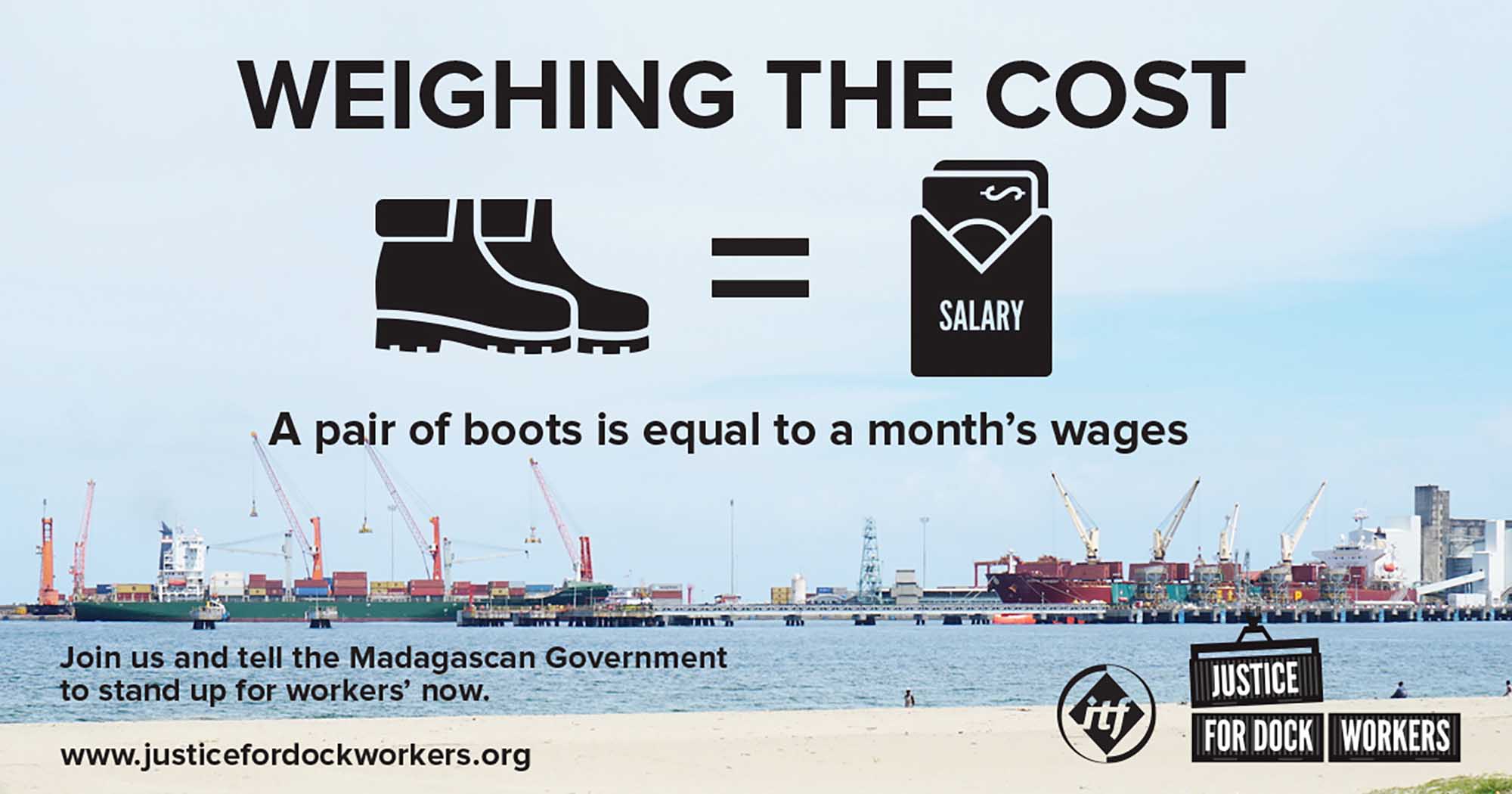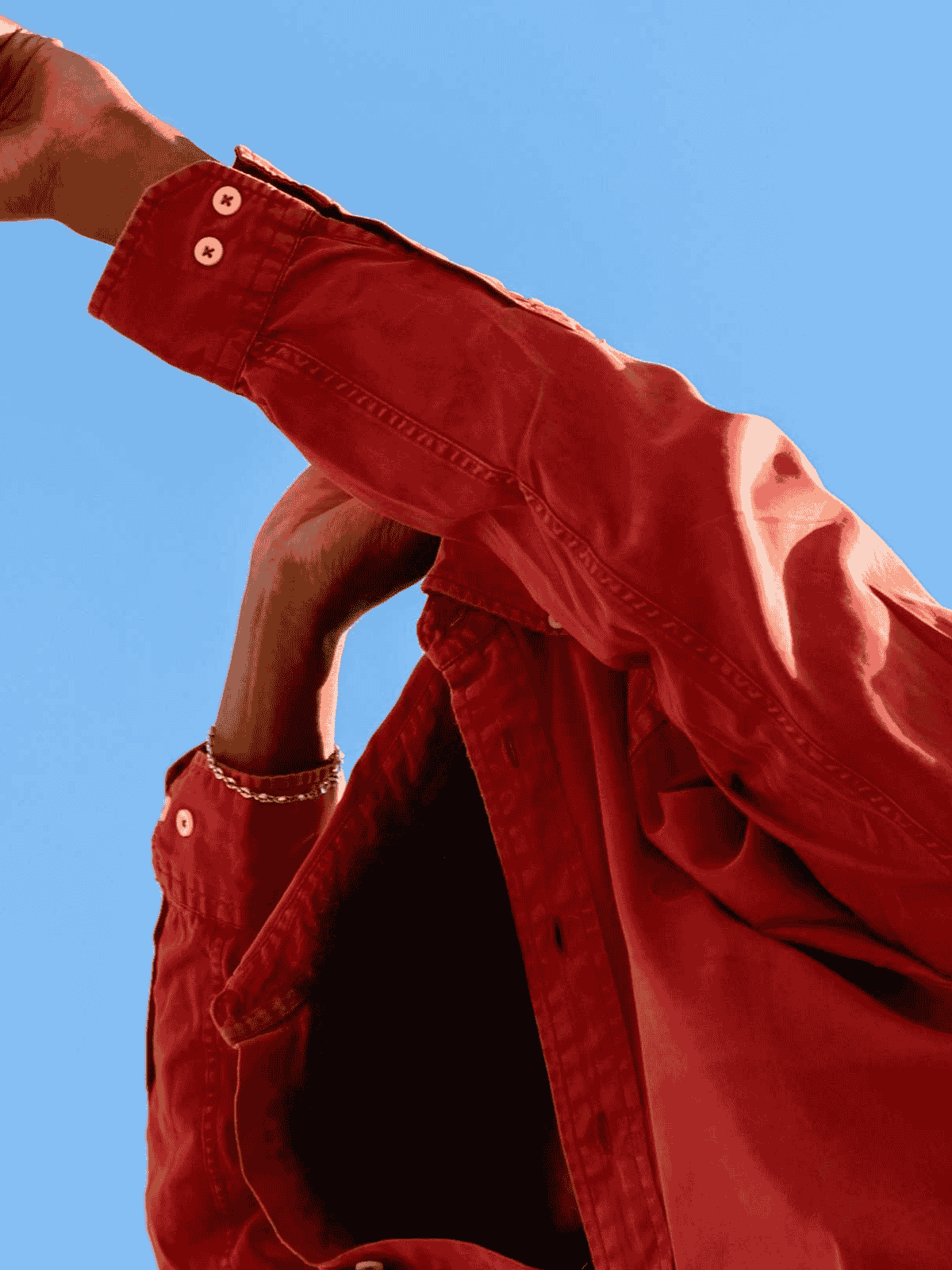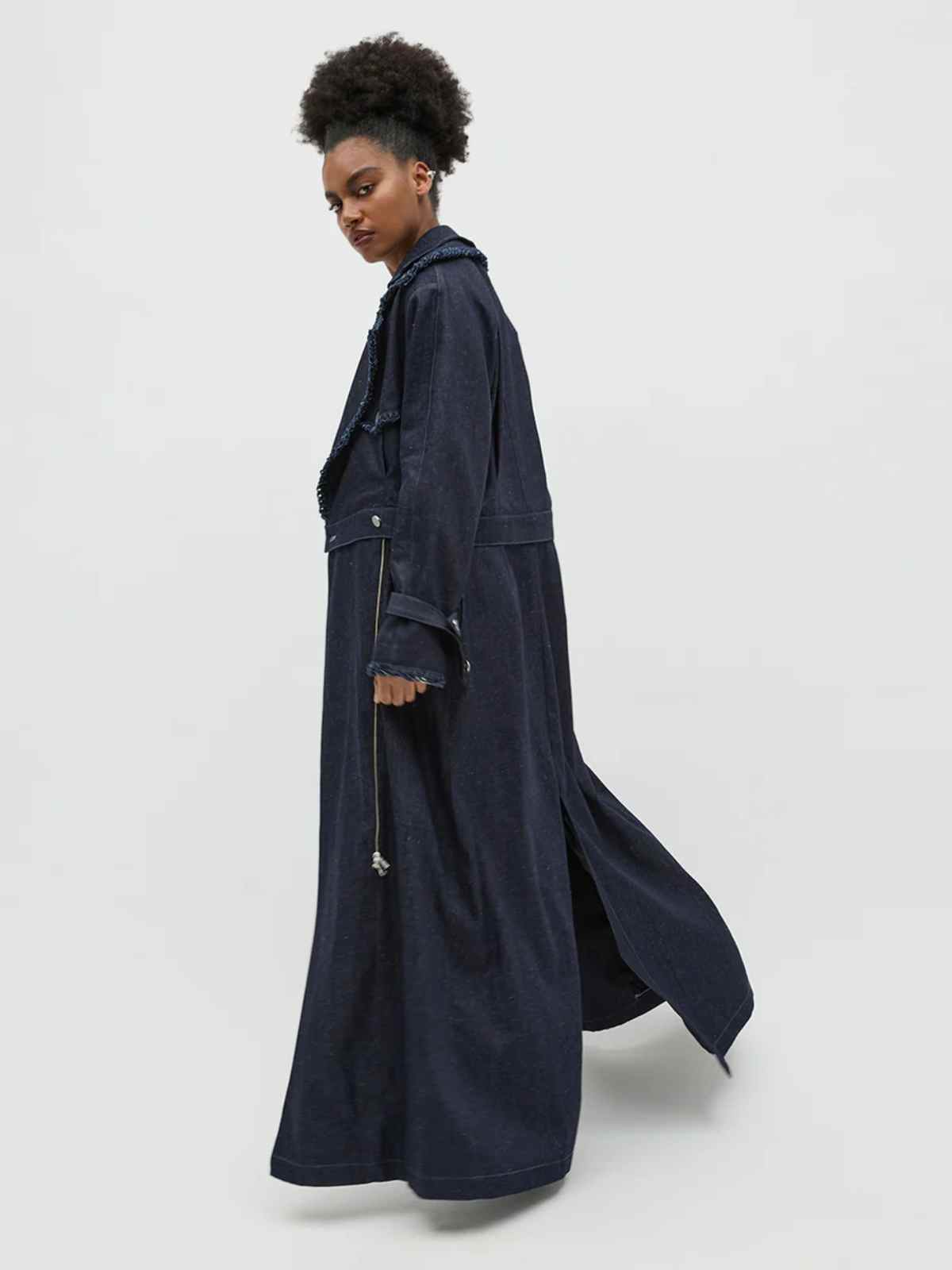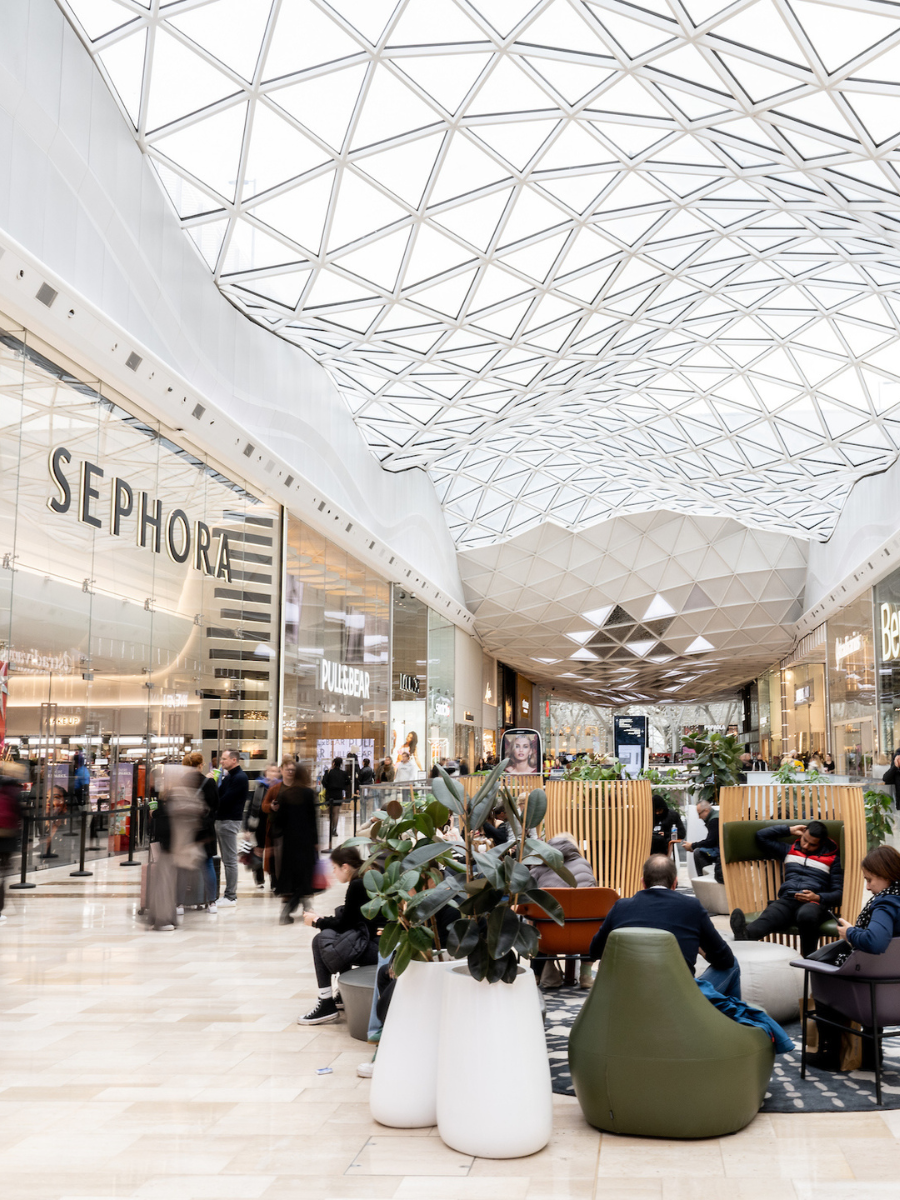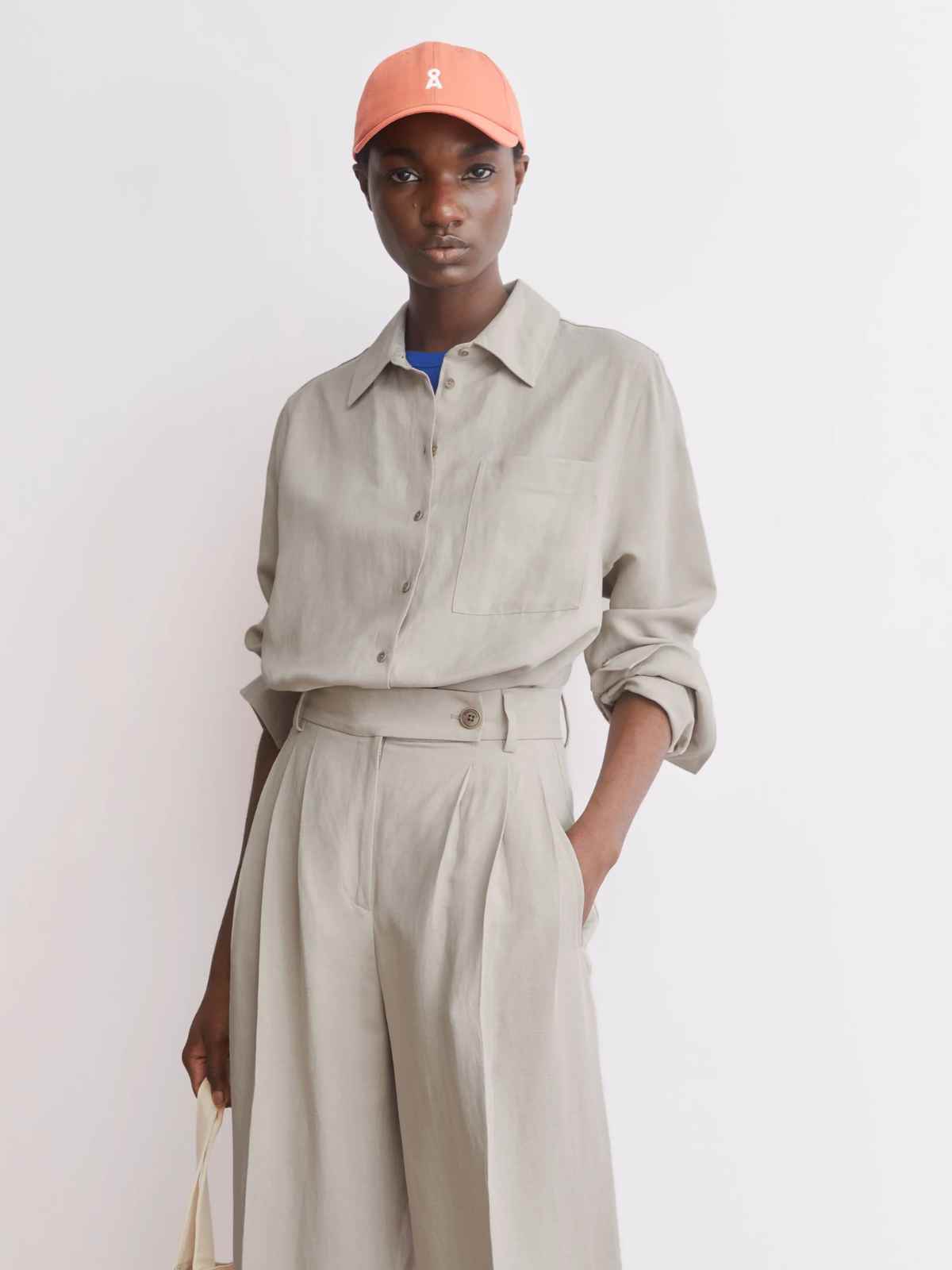Over the last 20-30 years, the fashion industry has gone global, in a big way. More and more clothes bound for western markets are made in supplier countries in Asia, Africa and South America and less and less in Europe, North America and Australia. And all of this globalisation is fuelled by the transport industry – in particular, the container shipping industry.
The hidden workforce
In 2005, an amazing 18 million containers made over 200 million trips per year. The amount of stuff shipped around the world in containers increased nearly 300% from 2000 to 2014. There is a hidden workforce that is crucial in ensuring that these containers make it from A to B, delivering clothing from the factory to stores around the world: transport workers. Truck drivers, seafarers and dock workers have enabled the globalisation of the fashion industry, which has grown to equal 2% of global GDP.
Madagascar is probably not high on your radar as a place where your clothes are made – but over 30% of their formal workforce – 73% of all manufacturing jobs – are employed producing clothing like jeans, shirts and knitwear for well-known brands like Levi’s, Esprit and Marks & Spencer.
But all is not well on the docks in Madagascar. Almost all trade flows through the Port of Toamasina – run by one of the world’s fastest growing port operators, Philippines-based ICTSI. The majority of the workforce handling the containers loaded with clothes bound for our local stores are employed as casuals who earn as little as US$40 per month, way below what a family needs to live on.
And it’s not that the company is facing cost pressures: ICTSI has the highest profit margin per container in the world. The company boasts that “Africa is a very good place for us”. The International Transport Workers’ Federation (ITF) has calculated that of the US$200 ICTSI is paid per container, a casual dock worker will earn just US$0.02.
Madagascar has strict laws on the use of casual workers. Yet, ICTSI has blatantly disregarded these laws. And when workers joined their local union, Syndicat General Maritime de Madagascar (SYGMMA), in the hope of improving precarious, and often unsafe, working conditions at the port, the company responded harshly. Workers faced intimidation, and in 2012, 43 workers were sacked for union related activity.
Paddy Crumlin, President of ITF explained that “Having exhausted all attempts to reinstate the workers and resolve the issue domestically, including a court ruling which ordered the company to recognise the union, SYGMMA turned to the ITF for support.”
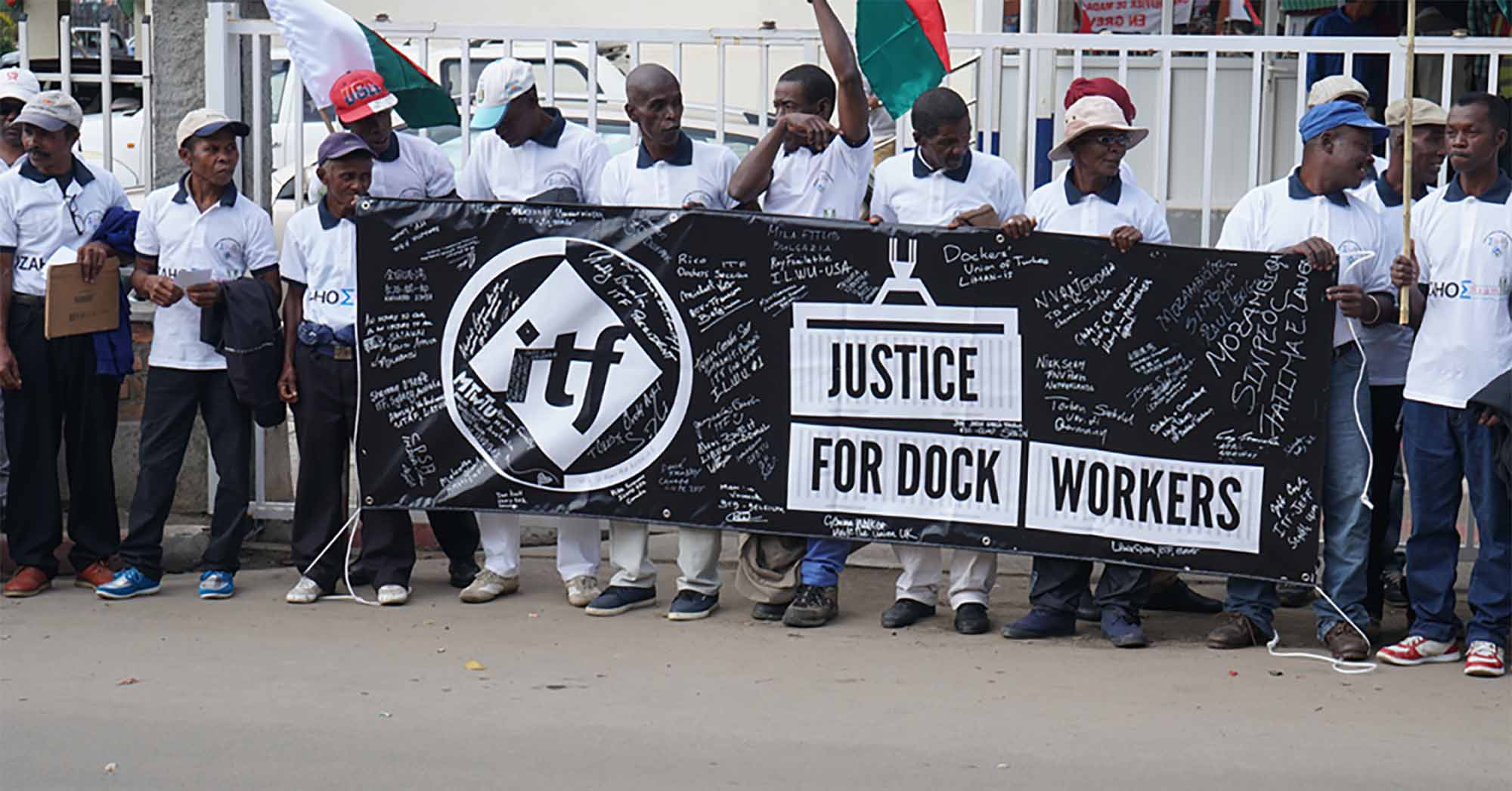
Management came to us and told us that if we didn’t leave the union we would lose our jobs. But we wanted to stay with SYGMMA to fight for better work
Port Worker
As the global body which represents over 700 transport unions and 4.5 million transport workers internationally, ITF is calling on the Government of Madagascar to ensure that the law is enforced, and that the government lives up to its commitment to international labour rights conventions. In May 2017, the ITF’s Asia Pacific Campaign Centre began actively campaigning and engaging with major fashion brands transporting goods through the port.
“ITF challenged global brands sourcing from Madagascar to step up and support the rights of dock workers at the Port of Toamasina, and the response has been positive. We’ve seen concrete steps to support these workers, with brands writing directly to the Government of Madagascar calling on them to enforce international labour standards,” said Crumlin.
It’s great to see that a number of brands are responding – Levi’s, Esprit, Marks and Spencer, Skins, Next and Men’s Warehouse UK have now supported the campaign.
The Ethical Trading Initiative, and industry based initiative for improved labour rights, has joined the call to action. Martin Buttle, Category Leader of Apparel and Textiles, said “Not only were we concerned for the dock workers themselves, we were also concerned that action against legitimate union activity would deter investor confidence in Madagascar as a future sourcing market.”
“In the letter to the government, we confirmed that our members wanted to continue sourcing from Madagascar but equally had to consider obligations to comply with international standards. With the full support of our members, we therefore asked that the government of Madagascar take steps to enforce its labour laws, ensure that the 43 dock workers were reinstated and allow the union to organise at the port,” he said.
But the campaign also poses a bigger question: do fashion brands have a double standard when it comes to transport workers?
Championing the rights of dock workers
These Madagascan dock workers – a vital part of brands’ global supply chains – have experienced numerous labour rights abuses. Yet they are rarely explicitly mentioned in the policies that ensure minimum conditions for workers throughout factories and sourcing supply chains.
Brands have long recognised that shipping clothing around the world has huge environmental impacts, and have developed policies that favour shipping lines who take steps to reduce their carbon emissions. But as the story of the Madagascan dock workers shows, the rights of workers who load and work on those same ships are often ignored.
I work every day. Every single day. Each night, when I sleep, I feel very tired. I ache all over my body…Some days, we don’t have anything to eat. No lunch, no dinner. We don’t have enough money, even though I wash clothes every day.
Port Worker
Beyond calling on governments to enforce international labour standards, fashion brands should also ensure that the shipping lines and ports they use uphold the same standards that these brands apply to their manufacturers.
What can we do as consumers?
As consumers, we can help by making some noise on this issue and show brands that we care about the welfare of dock workers in the global fashion supply chain. Here are few simple actions you can take today:
Action #1 – Send some love to the brands that have responded positively. Click here for the Facebook pages for Levi’s, Esprit, Marks & Spencer, Next and Skins, congratulating them on doing the right thing. Use hashtags like #GoodOnYouLevis #GoodOnYouEsprit and #justice4dockworkers.
Action #2 – Share this article via social media and tag your favourite brands. Use the hashtag #justice4dockworkers.
Action #3 – Use the Your Voice feature in the Good On You app to ask your favourite brands what actions they’re taking to protect the dock workers in their supply chain.
Action #4 – Click here to send a letter to the Madagascan Government, telling them to stand up for workers’ rights.
